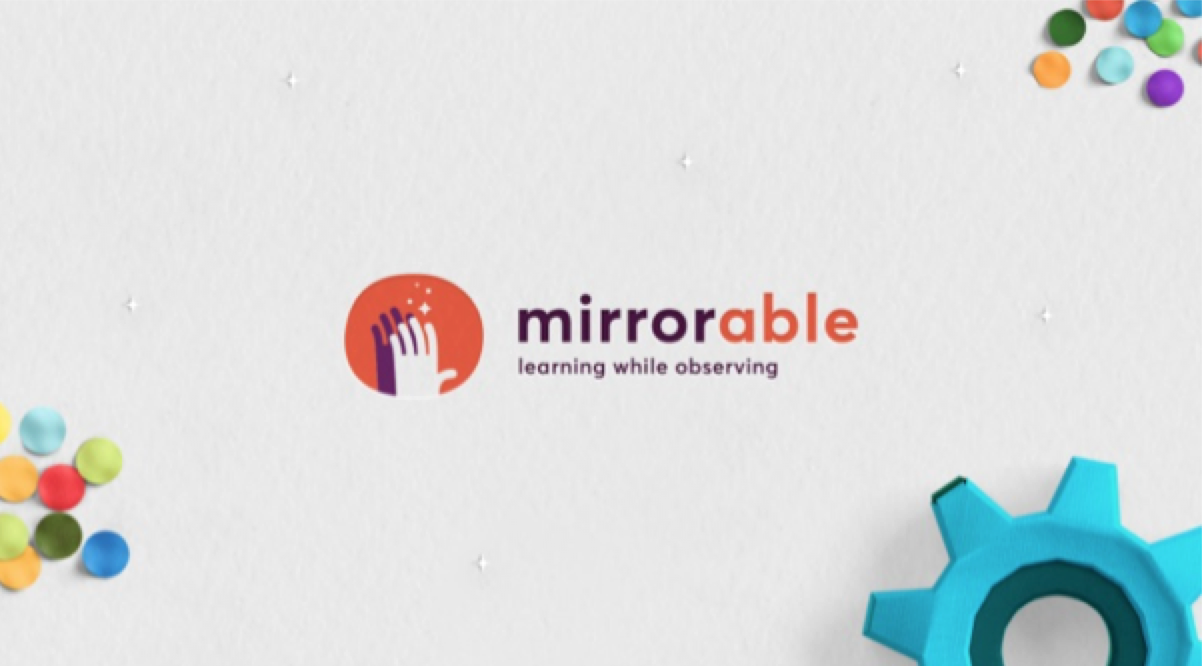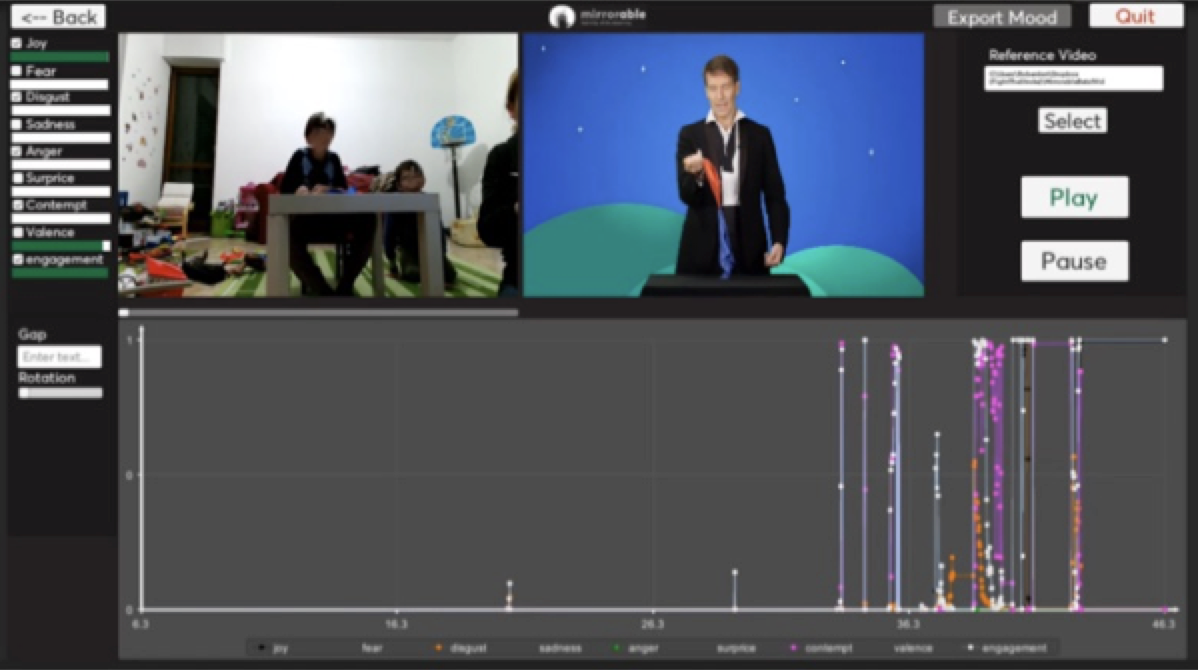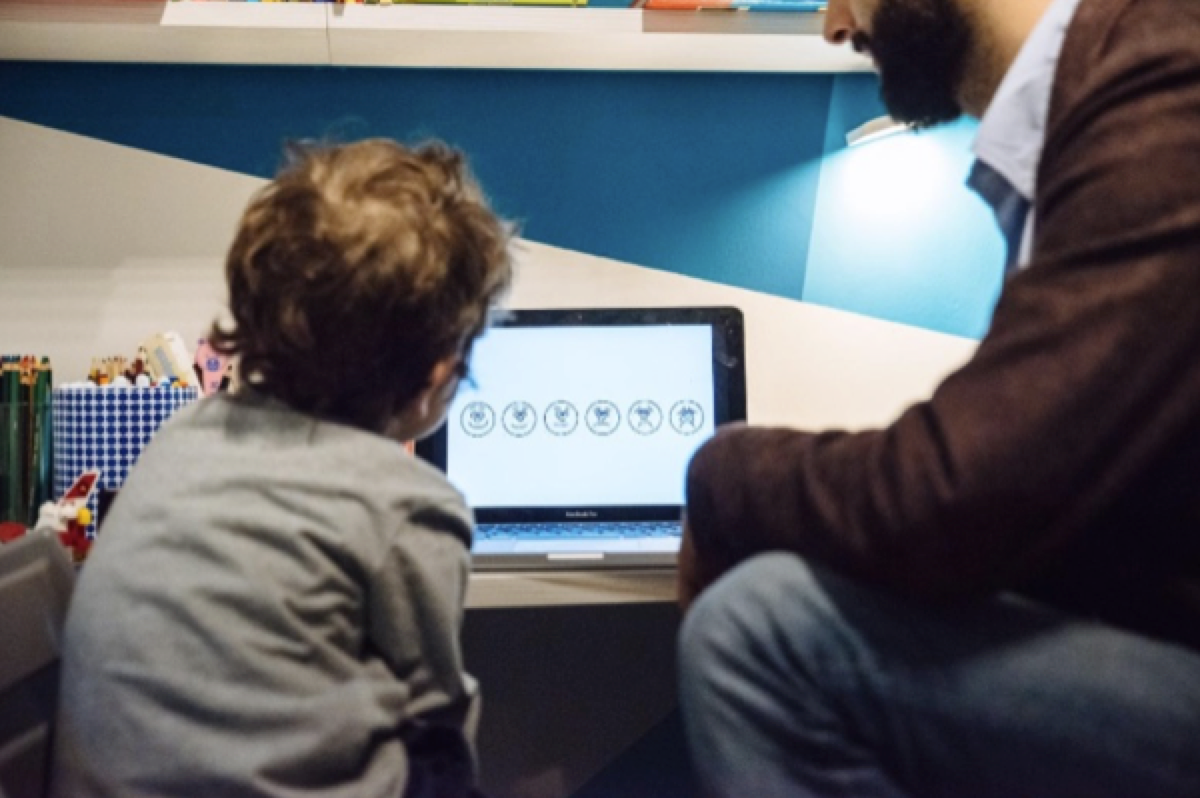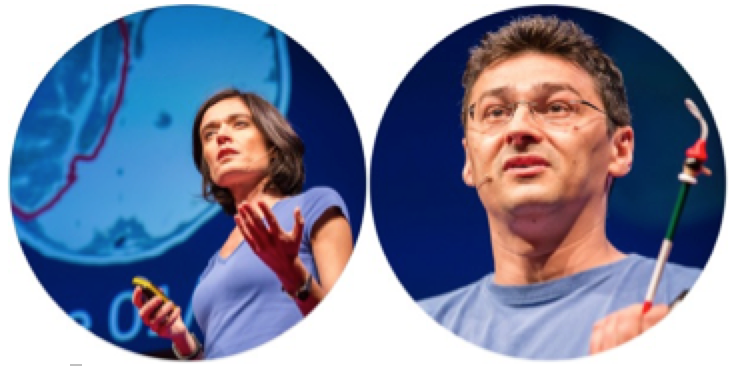This article describes a revolutionary rehabilitation therapy utilized with children suffering from consequences of stroke at young age. The therapy was developed within a framework that involves both children and their families and is supported by Mirrorable, a proprietary technological solution. Mirrorable is an interactive platform that enables a unique, at-home rehab therapy, able to stimulate the plasticity of the motor system by activating the mirror neuron system while watching tailored videos and playing remotely with friends with similar needs. Mirrorable enables caregivers and doctors to collect more data, find new patterns, and develop unique strategies for each young, unique human being.
Mirrorable is one of the key initiatives supported by Fightthestroke.org, the organization founded in 2014 by Francesca Fedeli and Roberto D’Angelo, out of their own daily experience as parents of Mario, who was affected by cerebral stroke at birth. Fightthestroke has built, in a few years, a strong network of expertise, reinforcing its mission to support research, knowledge and disruptive rehab solutions for paediatric stroke. Mirrorable is a concrete example of social innovation also from a business perspective, leveraging the cross-subsidy model, where the sales of the toolkit for adult patients or typical children may enable the toolkit to be offered to families affected by pediatric stroke free of charge.
Background
The focus of stroke research has typically been on adults, but incidence among children is widespread, affecting 3.5 million kids worldwide, equating to 2-3 out of every 1000 births. Furthermore, the causes of infant strokes are largely unknown, whereas stroke affecting older people can be largely prevented through a healthy lifestyle. Over 60% of children who survive strokes have permanent neurological deficits such as hemiplegia, impaired vision, difficulty with speech and language, learning disabilities, behavioural and personality changes, and development of epilepsy.
In the absence of effective rehabilitating therapies for Mario, their own child affected by perinatal stroke, Francesca and Roberto moved from their desire to enable their child’s full potential to a wider commitment. They started to look into the latest scientific results and decided to approach the situation in a reversed perspective, trying to fill the gap between their practical needs and recent scientific discoveries on how brains connects with the body, from which Fightthestroke, and Mirrorable, came to be. Thanks to the savvy usage of technology and the deep knowledge of the social issue from the bottom, they developed Mirrorable as the most effective solution to restore personal mobility of people with temporary or permanent motor impairments. Points of difference and strengths of the project are mainly focused on readiness to reach out across geographies, institutional boundaries, industry clusters, cultures and disciplines:
- global reach through cloud solutions
- family engagement, through therapeutic alliances with doctors
- big data gathering
- patient-centered design
- scientifically proven solution.
More information on the background can be found at the first TED Talk held by Fightthestroke founders Francesca Fedeli and Roberto d’Angelo: http://www.ted.com/talks/roberto_d_angelo_francesca_fedeli_in_our_baby_s_illness_a_life_lesson#
Innovative Approach
Mirrorable derives its name from the application of the latest scientific findings on ‘mirror neurons,’ the brain cells that are responsible for imitation and empathy, but also for motor rehab. It is an innovative toolkit, inspiring children to learn new abilities (e.g., how to become a magician) while practicing motor skills, watching videos for children on television monitor, specifically developed to apply scientific discoveries around mirror neurons for rehabilitation therapy, simply learning while observing.
The innovation lies in the fact that kids are learning and improving motor performance by watching tailored videos that activate their mirror neurons. A mirror neuron is a neuron that fires both when a person acts and when the person observes the same action performed by another person.
One of the advantages of this gaming approach is that children are easily involved in regular physiotherapy through something that they enjoy: watching TV in a favorable environment, at home surrounded by family and friends. Children are encouraged to watch the master example (i.e., the magician), to practice individually and coupled with a peer, while the data from their activity is captured by a 3D camera so that progress can be measured and improvements tracked.
Playing in couple through the video console turned out to be a further advantage, as an important motivator for children in their daily game-therapy. Children develop empathy and build emotional relationship with their friends, matched by an algorithm of artificial intelligence, therefore creating the best positive environment that improves the quality of their lives and strengthens rehabilitation outcomes.
What at first was considered a social stigma, with Mirrorable now becomes a way to express social pride, realizing the unexploited potential of vulnerable kids.
The entire Mirrorable framework is built around the concept that therapy should be holistic: children’s rehabilitation shifts from the hospital setting to their home and therapy becomes part of their life in a friendly and adaptive way. For both children and families, therapy stops being an “external” and separate activity.
Mirrorable is one of the key projects run by Fightthestroke, together with a group of doctors and technical experts from the National Institute of Research in Italy and Brain Prize Winner Professor Giacomo Rizzolatti, the neuroscientist who first discovered Mirror Neurons. In the long run, the collection of these data could be used to provide a greater understanding of cerebral palsy—paralysis that affects children’s bodies and is often caused by a stroke and other brain damage.
In the following video the innovative design process behind the realization of Mirrorable is also shown: https://designmind.frogdesign.com/2016/11/learning-to-fight-the-stroke-frog/
Outcomes
The first months of experimentation with Mirrorable are promising and are being examined by physicians and experts from the University of Parma, Italy, as an innovative model of social innovation in healthcare, coming from the bottom and crowdsourced by the families in need.
First results in family enrollment are very encouraging: more than 16% of the contacted families utilized the program, and if you look at this data of market penetration from the lens of the Diffusion of Innovations Theory, it represents the tipping point for having a mass-market acceptance of the idea, when the system starts tipping.
A rigorous outcome evaluation is underway, taking into consideration the specific aims of this study:
- Assess the effectiveness of Mirrorable to improve the motor outcomes of the upper limbs, measuring specific gestures as reaching, grasping and supination with the impaired hand
- Assess the effectiveness of Mirrorable for increasing adherence and compliance to the intensive sessions of therapy (1 daily lesson for a month)
- Explore factors related to children's engagement that mediate and enhance patient physical outcomes, measuring ‘the empathy factor’ during children’s interaction through mood detection software.
The 3 main key performance indicators are measured both in a traditional way (scientific scales handed out by the doctors) and innovative scales thanks to applied technology (i.e., Kinect 3D camera to evaluate kinematics indicators).
We're harnessing the healing power of empathy—the parent/child bond—to accelerate health outcomes among patients, and empowering parents to rehabilitate their own children. Combining video game technology and harnessing the power of empathy has the potential to inspire and profoundly transform rehabilitation and cure for all types of traumas.
Conclusion
Research for pediatric stroke is historically under-supported and under-funded. This severely limits the ability to investigate important aspects, such as new treatments, factors influencing the quality of life of survivors, and causes and prevention of paediatric stroke. The first critical step in achieving more research is to educate and raise awareness that strokes can happen in babies, children and before birth.
Mirrorable is a powerful example of some of the innovative work that can be done to improve the lives of children with cerebral palsy, making it easier for them to develop the most of their potential, both from a motor outcome and social perspective. Mirrorable proved the solution to be as simple as ‘disruptive’ for its extraordinary effects.
Fightthestroke’s mission is to give hope to more and more families, around its strong network of knowledge and response built around families. Future objectives include scaling up Mirrorable to make it accessible as widely as possible, becoming the best way of learning or re-learning motor skills even in typical and inclusive environments.
References
More references for families are available here: https://fightthestroke.org/for-parents/
Scientific papers on mirror neurons and latest scientific discoveries are available on Pubmed: https://www.ncbi.nlm.nih.gov/pubmed/?term=rizzolatti+mirror+neurons
Images
Figure 1: Mirrorable, Learning while observing

Figure 2: Mirrorable interactive Dashboard - reading through emotions

Figure 3: Therapy at home for kids

Figure 4: Francesca Fedeli and Roberto D'Angelo, Fightthestroke founders



